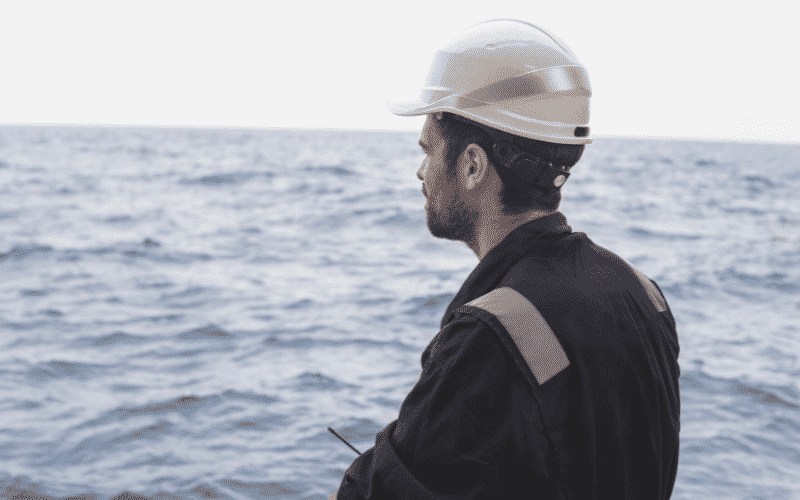
[ad_1]

The Seafarers Hospital Society (SHS), Yale University and Lloyd’s Register Foundation told shipping companies that they will need to create a culture of care if they are to adequately address the health and welfare needs of seafarers.
Reporting on the early findings of their landmark study of maritime worker health initiatives at a London International Shipping Week (LISW) webinar last week, research lead Dr Martin Slade, Director of Yale University Maritime Research said: “Seafarers need to feel safe and be able to express themselves without fear of reprisal. They need to be looked at as people not just a source of profit.”
He continued: “When they finish their tour they are at their highest risk of suicide, not just while they’re on board, but just after they leave the ship too. So the culture of care needs to be holistic – on board and on shore, involving not only the crew but their families as well.”

Representation image
Dr Olivia Swift, Senior Programme Manager at Lloyd’s Register Foundation, reflecting on the findings of round table discussions which took place during the summer, highlighted a further five key messages for shipping companies emerging from the research so far. They are: get the basics right for food, water, accommodation and recreation; minimise bureaucratic workload and undue pressure by automating or moving some aspects ashore; look at what can be done to address fatiguing and intensive port calls; consider the potential to reduce contract length; and address the impact of no change crew clauses on seafarer health and welfare.
“No crew change clauses have been an issue over the last year during COVID and many of the companies participating in our research felt they should be refused when signing agreements with charterers. While acknowledging the difficulty in potential implementation and the financial risks taken by charterers, many of the study’s respondents felt that responsible companies should turn down business with a charterer if the terms were not conducive to good psychological wellbeing for seafarers,” said Dr Swift.
These and other emerging issues are part of a larger ongoing landmark study by the Seafarers Hospital Society (SHS), Yale University and Lloyd’s Register Foundation (LRF). The study is looking at the effectiveness of the various maritime worker health initiatives taken by shipping companies, charities and the wider maritime sector to keep seafarers healthy and safe.
Welcoming participants and introducing the panel, Sandra Welch, CEO of the Seafarers Hospital Society said: “This panel discussion is part of the ongoing research. It’s our way of not only involving you in the research process but also providing you with a window into the research project itself.”
She added: “Some of the early research with shipping companies suggests there are sometimes areas of tension between owners and charterers, as seen recently regarding who should pay into the proposed carbon levy. The study is looking at how these and other issues could be addressed in the interests of seafarers’ health and wellbeing.”
The research team were joined in a panel discussion by Ismael Cobos Delgado, Head, Maritime Training and Human Element at the International Maritime Organisation (IMO) and Guy Platten, Secretary General of the International Chamber of Shipping (ICS).
Cobos said: “It has been, and continues to be, a very challenging time for the whole maritime community. The COVID-19 pandemic continues to place immense physical and mental pressures on the world’s two million seafarers. Hundreds of thousands still face extended times at sea, with tours of duty stretching many months beyond their contracts. Unable to go to shore, repatriate and join ships, and without access to medical care, seafarers face a humanitarian crisis that puts at risk the safety and the future of shipping.”
Guy Platten welcomed the initial report of the study and called on the industry to act on its important findings. Drawing on his own experience as a seafarer he said: “Even short unexpected additions to time on board in excess of contract length can have an adverse effect on seafarer mental health, particularly as they anticipate being reunited with loved ones. The indefinite periods seafarers have been asked to wait during the crew change crisis continue to be immensely hard on them psychologically.”
While immensely proud of the way industry stakeholders had come together during the pandemic to address key issues, Platten argued that if they return to the fragmented working of the past, any gains made in the last 18 months would be lost. “We are more united than most other sectors,” he said. “We must work together and build a better industry as a result of the COVID-19 pandemic.”
When asked what one thing they should do to improve seafarer health and wellbeing Platten appealed to the industry to “take a holistic approach to the way we treat our seafarers. They need to feel cared for, wanted and respected for what they do.”
Press Release
Marine Insight does not own the rights of the video.
Culture Of Care Is Key To Future Seafarer Health And Welfare: Seafarers Hospital Society appeared first on Marine Insight – The Maritime Industry Guide
[ad_2]
This article has been posted as is from Source